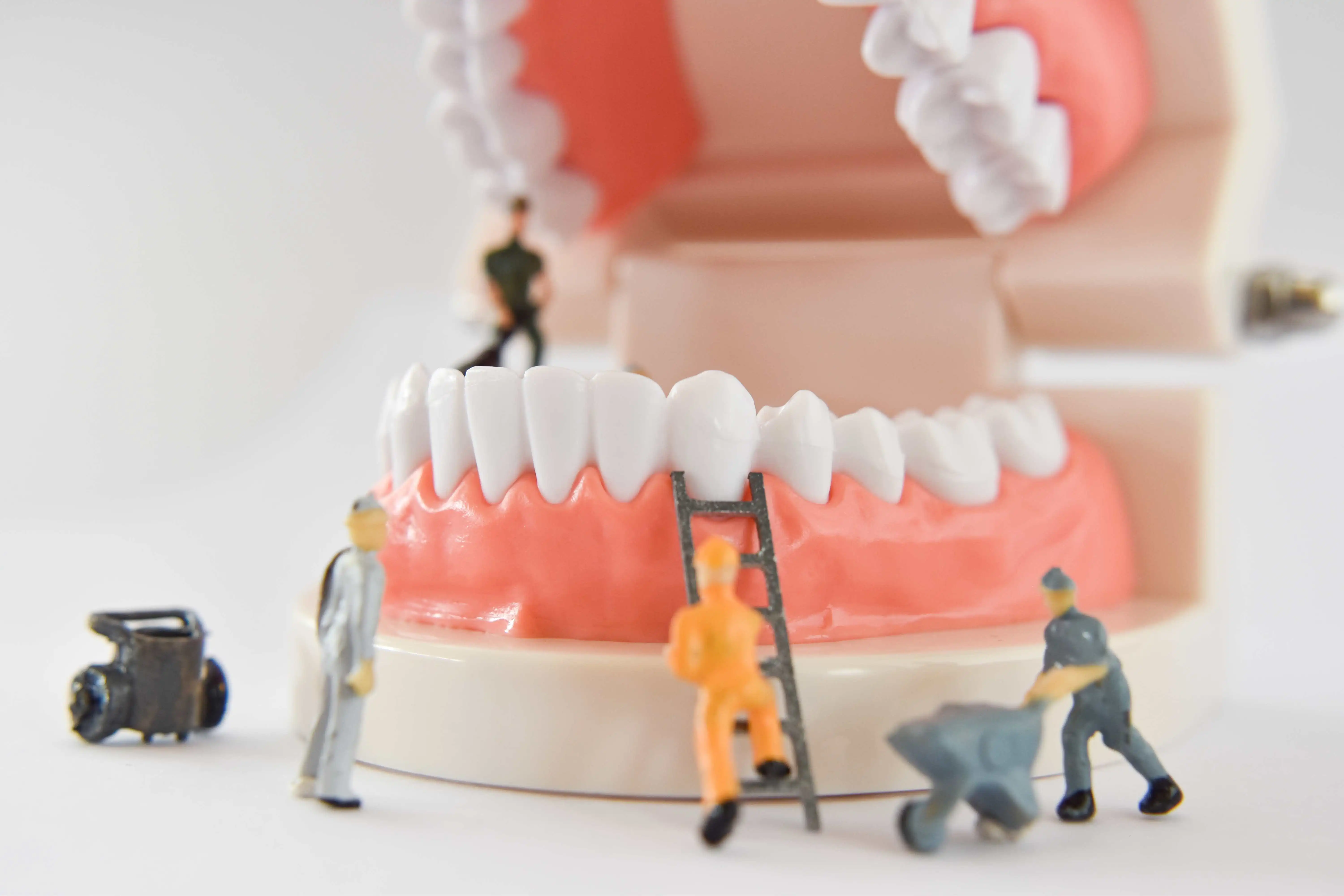A dental implant is a structure that replaces a missing tooth. Many people experiencing tooth loss opt for dental implants because of their multiple advantages – some of which you’ll read about below.
Since its initiation in the early 1950s, dental implant have undergone modification and developed into the gold standard, they are today. This article will explore how long dental implant last and whether they are worth it.
How Long Do Dental Implants Last: The Structure of a Dental Implant
Dental Implants are a 3-piece unit as described below:
- The first part is called the implant base. The base is made from medical-grade titanium and is placed within the jaw bone. The placement is a surgical step performed by your dentist. The post is placed at the site of the missing tooth.
- The second part is called the connector. It connects the implant base to the false tooth.
- The third and final part is the false tooth. As you can understand, this part replaces the missing tooth in the mouth. To return a single missing tooth, the false tooth is usually in the form of a dental crown.
How Long Do Dental Implants Last? The Process of Getting Dental Implants

Getting a dental implant is a multi-step process. It also involves a thorough examination and planning to achieve the desired results.
Step One – The Consult
The first step is the consultation process. Your dentist will thoroughly examine your mouth, gums, and jawbone. They will take X-rays to assess jaw bone health.
You must have a healthy quality and quantity of jaw bone for the implant to be successful.
You must also be free from chronic medical conditions such as diabetes, heart disease, etc., to be a good candidate for implants. Smokers are also advised against them.
Once the dentist has determined that you can get implants, they will proceed to step two.
Step Two – The Surgery
For the surgery, you will be given novocaine to keep you pain-free and help you relax throughout the procedure.
The gums at the implant site are cut open to expose the underlying bone. A dental drill is used to make space for the implant post. The post is placed within the jaw bone, and the gums are stitched back into place.
You will be prescribed medication to help with post-op soreness and are sent back home to recuperate.
Step Three – The Fusion Process
After the surgery, there is a 6-12 week waiting period till your next appointment. In this time, the jaw bone grows into and around the implant post, fusing with it. This process is known as osseointegration and is responsible for dental implants’ long shelf life.
Step Four – The Connector
Once the fusion is complete, your dentist calls you back to the dental clinic. In this appointment, they secure the implant connector on top of the post.
You are sent back home and given a date for the next appointment.
Step Five – Placing the False Tooth
At your last appointment, your dentist secures the false tooth into place.
Depending on the number of missing teeth, your dentist advises which unit will work best.
- For a single missing tooth, a dental crown is used.
- A dental bridge may be used to replace several missing teeth.
- For all missing teeth, a denture is placed to provide a complete set of teeth.
Your dentist also schedules appointments at regular intervals to keep an eye on the implant’s progress. How frequently you show up for these checkups can also impact how long dental implant last.
Dental Implants – The Advantages

Dental implants have many advantages, some of which are –
- Improved Appearance
Implants feel and look like your own teeth.
- Improved Speech
Poor-fitting dentures can slip within the mouth, causing you to slur or mumble your words. Dental implants allow you to speak comfortably without the risk of embarrassment.
- Improved Comfort
Because they fuse to the jawbone, dental implants eliminate the discomfort of removable dentures.
- Easier Eating
Dental implants function like natural teeth, allowing you to eat your favorite foods confidently and without pain.
- Improved Self-Esteem
It helps restore your smile and help you feel better about yourself.
- Improved Oral Health
Dental implants don’t require modifying other teeth, as a dental bridge does. This means your teeth are left intact, improving long-term oral health. Individual implants also improve hygiene by allowing easier access between teeth.
- Durability
Implants are very durable and, with reasonable care, last a lifetime.
- Convenience
Because dental implants are fixed, they eliminate the inconvenience of removal and the need for messy adhesives to keep them in place.
How Long Do Dental Implants Last?

Dental implants are designed to be a permanent fixture in your mouth. Studies have reported a 90 to 95 percent success rate of dental implants over 10 years.
Dental implants can last over 30 years with proper care and maintenance.
However, certain factors can affect the lifespan of a dental implant –
- Oral Health
A dental implant requires the same care as your natural teeth.
You will still be susceptible to issues like gum disease even with dental implants, so you must maintain a high level of oral care.
Make sure you brush your teeth twice daily and floss as often as possible to reduce plaque build-up and keep your gums healthy.
- Lifestyle Choices
Excessive smoking and heavy drinking can dramatically affect your dental implant’s length.
Smoking produces bacterial plaque, which becomes gum disease if not treated properly. Furthermore, smoking also hampers the implant’s healing process, causing it to fail.
Similarly, alcohol causes dehydration, preventing proper healing.
- Injury or Damage
Just like your natural teeth, dental crowns are susceptible to cracking and damage due to –
- Facial injuries.
- Chewing complex substances such as brittle sweets or ice.
- Eating sticky or chewy foods.
- Use your teeth as tools to open bottles or plastic packaging.
- Medical Conditions
Certain pre-existing medical conditions can affect the life of dental implant. For example, diseases such as diabetes or a weakened immune system can impact the success of the treatment.
So, How Long Do Dental Implants Last?
Dental implants can last a lifetime if maintained properly by practicing good oral hygiene (brushing twice daily and flossing once) and going for regular exams.
Although they can sometimes persist for several decades, the crown linked to the implant will typically need to be replaced every 15 to 20 years.
Discover How Long Do Dental Implants Last at RiverRock Dental, MN
RiverRock Dental in Shakopee, MN, is dedicated to providing you and your family with the highest quality and most comfortable dental care.
Our dedicated dentists, Dr. Todd Christianson, Dr. Andrew Backes, Dr. Nathan Hanson, and our knowledgeable dental team offer personalized, caring, and comprehensive services for all ages. We also excel in providing dental implants that last long and help restore your ability to eat, smile, and enjoy life.
To know more about getting dental implants at RiverRock, please contact us by calling (952) 445-5556. You can also leave us a message here, and we’ll get back to you as soon as possible.

